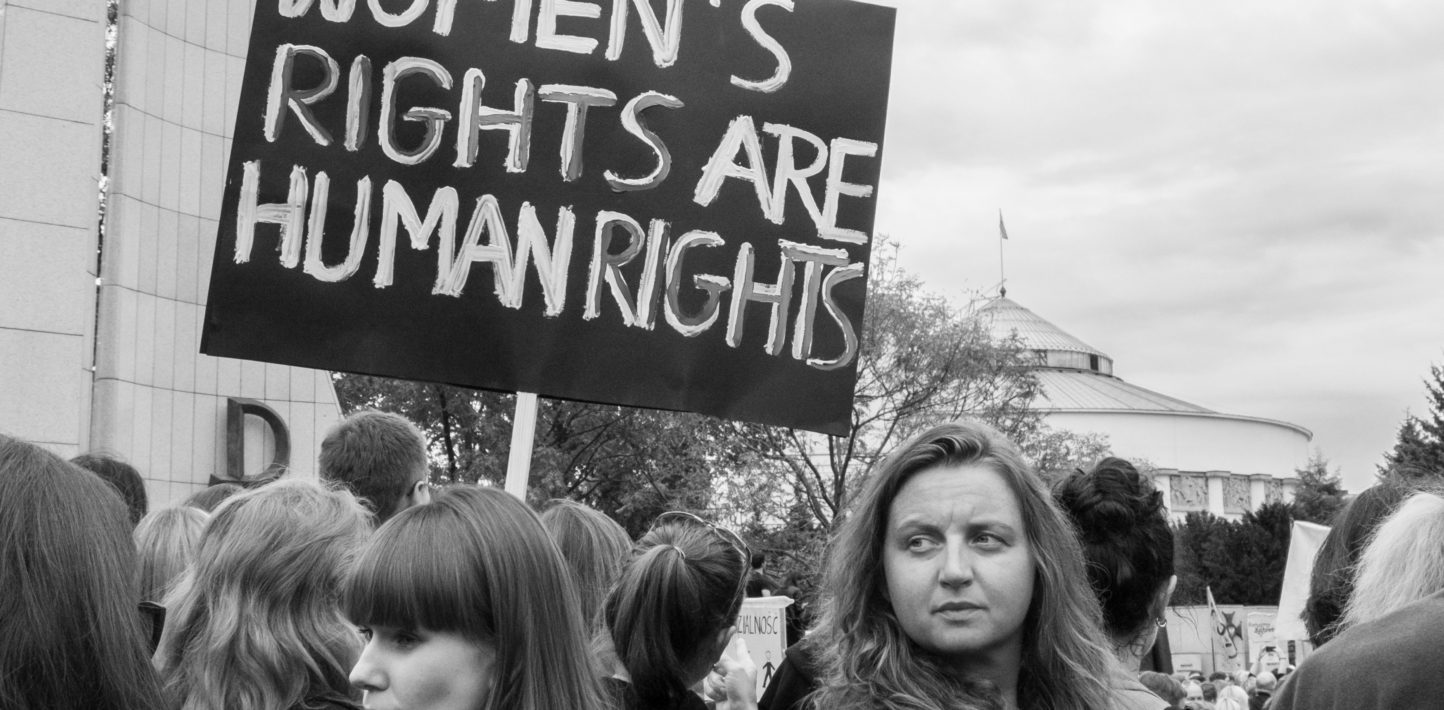In the first of a series of profiles of Human Rights Defenders and how they came to be, we talk about Tarana Burke, the woman who changed the conversation on sexual violence forever.
Before the Me Too movement went viral in October 2017, activist Tarana Burke had been using the phrase for over a decade in her lifelong fight to help and protect victims of abuse. The sudden fame of the hashtag and her work caught Burke by surprise, but she’s been able to use it for the goal she’s been working on for over twenty years: help survivors heal and end sexual violence.
Tarana Burke has always been an activist aiming to help those whose voices are hardly ever heard. At only 14, she was part of an organization called “the 21st Century Youth Leadership Movement”. There, she organized around the Central Park Five case in 1989, where five young men of colour were wrongly accused of a crime, and against an initiative led by Donald Trump to reinstate the death penalty in the state of New York to punish the teens. “I’ve been fighting back against Donald Trump for a long time” she tells Elle.
Burke has done work in every area of social justice you can think of, but she has specifically focused on girls of colour and their struggles, particularly around issues of racial and gender equity. She has also gone through the experience herself, and as a young survivor of sexual violence, she realized there weren’t enough resources to start the long path to heal.
She told Elle about her experience trying to seek help: “I went to the local rape crisis centre and knocked on the door and the woman answered, opened it but she didn’t invite me in – an older white woman. And so I said ‘I’m trying to get information about your services,’ and she said, ‘We only take referrals’. And I said ‘Referrals from where?’ And she said ‘From the police stations’”.
That was the moment Burke realized she needed to do something. “We didn’t have a lot of resources, but my mother was very determined” she told The Guardian. “She had me in all sorts of programmes, anything she could put me in, she did”. It was those things that changed the trajectory of her life: “the first glimpses of healing, and understand what had been happening to me as a child, came from the literature that I read”.
Her work from then on focused on creating a space for “supporting and amplifying the voices of survivors of sexual abuse, assault and exploitation” through community organizing, workshops and, later, social media.
She has always known the numbers, and the immediate popularity of Me Too just confirms what she knew all along. She remembers one of her first Me Too workshops, with high school girls in Alabama. At the end, she handed out worksheets and asked the girls to write down Me Too if they needed help. In a group of around 30 girls, she expected to get back five or six Me Toos. She was shocked to see 20.
Thanks to her own experience and her extensive work with other survivors, Burke knows what’s important is to know you’re not alone, there’s others who understand and support you. And that’s where Me Too was born. “I knew when you exchange empathy with somebody, there’s an immediate connection you make with a person by saying ‘me too’” she explains to Elle. “That’s what the work is about. It’s about survivors talking to each other”.
Fast forward to 2017. Actor Alyssa Milano urged survivors of sexual assault to use the words “Me Too” on Twitter, with no idea of its origins or past. In just a few weeks, the hashtag was used over 12 million times. “If, in this country [US], we had an outbreak of some communicable disease that 12 million people got (…), we would be focused solely on the cure. That’s the difference in how people think about the disease of sexual violence” Burke tells Variety.
The sudden popularity of her words, and later her own movement, caught Burke by surprise. But she knew this was an opportunity she couldn’t miss: “I didn’t think we’d ever see a time when there would be a national conversation about sexual violence” she says to The Telegraph.
As for the future, she just hopes this moment will transform into a long-lasting movement. “We have to be in a moment of strategy right now. Organising has to happen. The amplification has happened” she tells The Telegraph, “The work that needs to happen now is what happens after you said ‘Me, too’”.
Among her goals, Burke calls for a greater focus on the victims rather than the aggressors. The movement is about “building something that doesn’t exist”, a global community to help guide survivors of sexual violence. Burke demands more resources, to help survivors heal, to help them be able to communicate, to save lives. In the end, she looks to create communities and continue educating people about sexual violence.
Burke knows she’s in a position of privilege now, and she wants to use it for good. “But if it hadn’t come along I would be right here, with my Me Too shirt on, doing workshops and going to rape crisis centres” because “The work is the work” she reminds The Guardian.
When honoured at Variety’s Power of Women event this year, Burke finished her speech with a rallying cry: “If you’re ready to change the world, if you are ready to join this movement, if you are ready to do the work that’s necessary to end sexual violence, I can only leave you with these words: Me too”.


